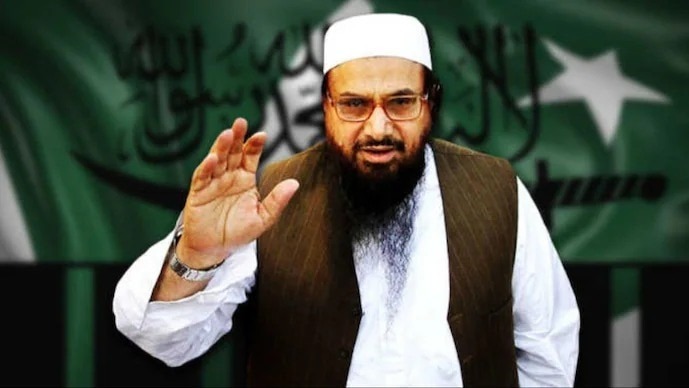
Exploring the Emerging Political Landscape: Marakzi Muslim League Enters the Fray in Pakistan Elections
In a significant turn of events, a new political player has emerged in the Pakistani political landscape, gearing up for the upcoming general elections scheduled for the 8th of February. The Marakzi Muslim League, a party speculated to be masterminded by Hafiz Saeed, the alleged mastermind behind the 2008 Mumbai attacks, has thrown its hat into the electoral ring, sparking both intrigue and controversy.
Party Composition: A Controversial Lineup
According to reports from BBC Urdu, the Marakzi Muslim League has fielded candidates from various cities in Pakistan. What sets these candidates apart is their association either with Hafiz Saeed’s family or their past affiliations with banned organizations such as Lashkar-e-Taiba, Jamaat-ud-Dawa, or Milli Muslim League.
UN Global Terrorist: Hafiz Saeed
Hafiz Saeed, currently incarcerated in a Lahore prison, has faced multiple convictions related to funding terrorism. In 2008, the United Nations designated him a ‘global terrorist.’ Despite these controversies, the Marakzi Muslim League has chosen to align itself with Saeed, raising eyebrows both nationally and internationally.
Banned Organizations and Political Connections
Pakistan has previously banned Lashkar-e-Taiba, Jamaat-ud-Dawa (JuD), and its affiliated groups and institutions. Notable organizations like Khair Nas International Trust, Falah Insaniyat Foundation, Al-Anfal Trust, Khmatab Khalik Institute, Al-Dawat Al-Arshad, Al-Hamad Trust, Al-Madina Foundation, and My Az Bin Jabal Educational Trust are among those included in the list.
Political Analysis: Marakzi Muslim League as the New Face
Experts analyzing religious parties in Pakistan suggest that the Marakzi Muslim League, an offshoot of JuD, presents itself as a ‘new political face.’ However, a party spokesperson vehemently denies any association with Saeed’s organizations, calling it baseless.
Saeed’s Son in the Electoral Arena
Adding a familial twist to the electoral saga, Hafiz Saeed’s son, Hafiz Talha Saeed, is contesting elections on behalf of the Marakzi Muslim League. He has submitted his candidacy for the Lahore constituency NA-122, where former federal minister Khwaja Saad Rafique, a leader of the Pakistan Muslim League-Nawaz, is also competing.
Dynastic Connections: Hafiz Nek Gujjar
In another constituency, PP-162, Hafiz Nek Gujjar, Hafiz Saeed’s son-in-law, is contesting on the ticket of the Marakzi Muslim League. This further strengthens the perception of dynastic politics within the party.
Historical Attempts and Restrictions
This isn’t the first instance of individuals associated with Jamaat-ud-Dawa attempting to enter mainstream politics. In the 2018 elections, some individuals linked to the organization tried to participate, but the Election Commission of Pakistan imposed a ban after opposition from the government.
Rebranding Efforts: Allah-u-Akbar Movement
After facing rejection, candidates affiliated with the banned Milli Muslim League rebranded themselves as the ‘Allah-u-Akbar’ movement in a bid to participate in elections. However, they faced defeat across the board.
Global Ban and Designation as Terrorists
While Milli Muslim League was not on Pakistan’s list of banned parties, the United States Department of the Treasury designated it as a banned organization in 2018. This move led to the declaration of seven individuals associated with the party as ‘global terrorists.’
The entry of the Marakzi Muslim League into Pakistani politics raises questions about the nexus between religious organizations, terrorism, and electoral participation. The unfolding events and the outcomes of these elections will undoubtedly shape the country’s political landscape. As the political drama unfolds, only time will reveal the true impact of this controversial entry.
Read More: The Kremlin Connection Why Vladimir Putin’s Name Appears 1,000 Times in Epstein’s Files

 Share
Share



